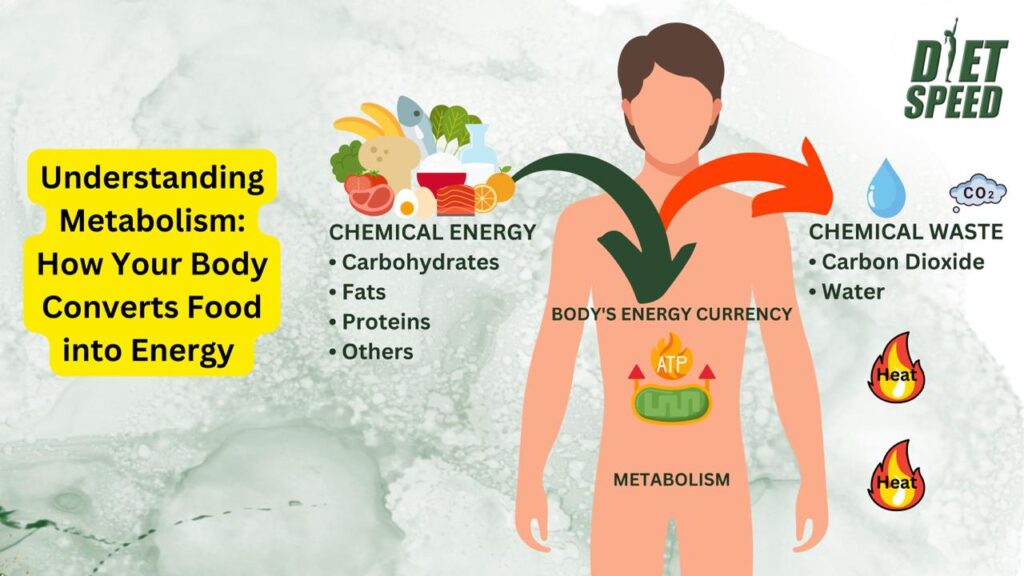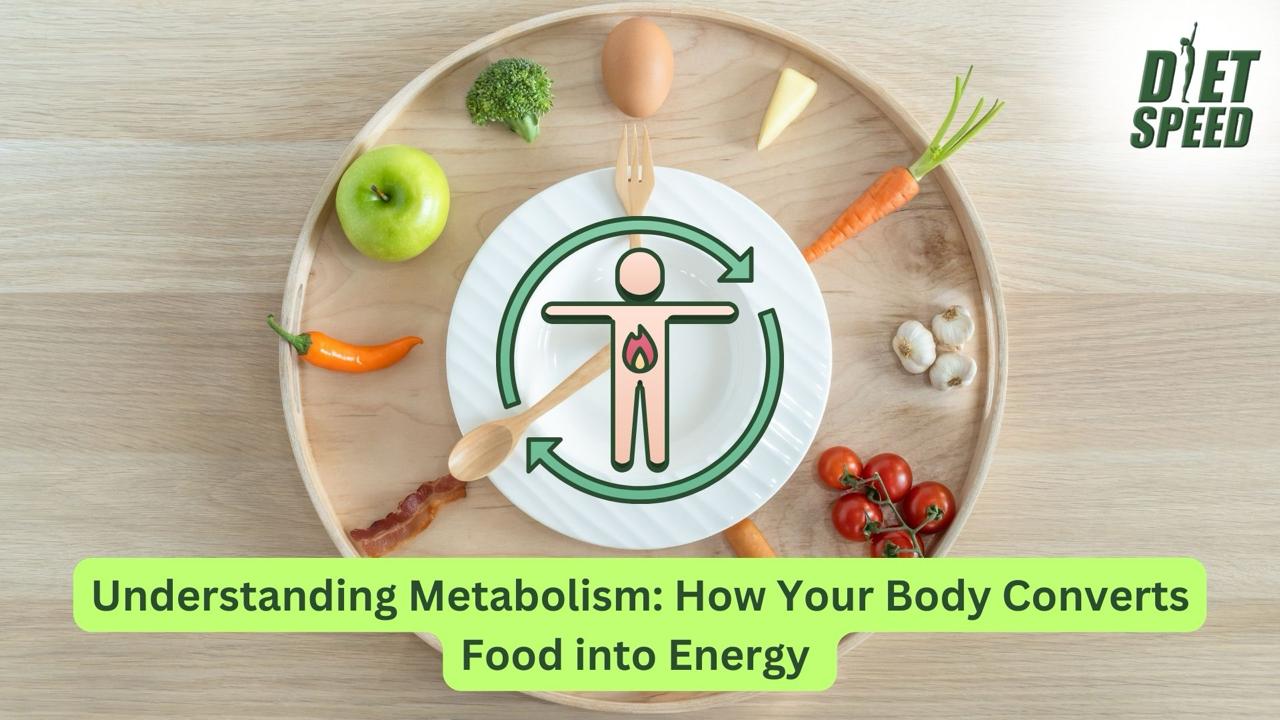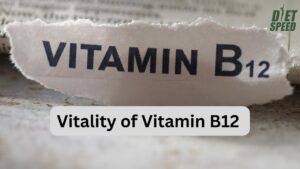Metabolism is the term for all chemical reactions in the cells, which ultimately transform food into energy. This energy keeps your body going for all activities in its routine cycle. It includes breathing, blood flow, growth, and repair. This guide contains information to explain metabolism. It debunks myths and explains the factors that affect it. It also covers some of the best ways to improve it.
What is Metabolism?
Metabolism is the chemical change that sustains life, taking food and changing it into energy. It has two divisions:
Anabolism: This is building up complex molecules from simpler ones. For instance, proteins are made from amino acids. Fats are made from fatty acids and glycerol. Complex carbohydrates are made from simple sugar. It requires energy and raw materials to combine to form larger molecules.
Catabolism: This is the opposite of anabolic metabolism. Generally, it is the decomposition of complex molecules into simpler ones with energy production. In its process, carbohydrates break down into glucose, fats into fatty acids, and proteins into amino acids. These products yield ATP, which is the principal breaker of energy in a cell.

How Does Metabolism Work?
Metabolism includes many processes that manage how living organisms produce and use energy. These processes are essential for life. They enable development, repair, and normal cell activity. Among the main individual metabolic function constituents are:
BMR: It is the minimum energy, in Calories, the body uses for vital activities. These include breathing and maintaining body temperature during rest. It depends on:
Age: With advancing age, there is a trend of a decrease in BMR due to reduced muscle mass and changes in hormonal levels. Most people lose muscle mass with age, which is more metabolically active than fat mass. In addition, there are hormonal changes, such as decreased levels of growth hormone and sex hormones, all contributing to a lower BMR.
Sex: Overall, men have a higher BMR than women because they typically have more lean muscle mass. Muscle tissue requires more energy for maintenance than fatty tissue. There is, therefore, increased evidence of energy expenditure in men. Also, hormonal differences exist between the sexes. Men have higher testosterone levels. This favors the development of more muscle and a higher metabolism.
Body Composition: Muscle tissue burns more calories at rest than fat tissue. So, the more muscle one has, the higher their basal metabolic rate is. Including physical activity for a long time builds and keeps muscle. It can greatly raise BMR.
Genetics: Genetic factors may impact the rate at which an individual’s body uses those consumed calories. Some have a higher metabolism due to genetic inheritance and hence are naturally capable of burning more calories.
Hormones: Thyroid hormones T3 and T4 are the most important hormones in controlling metabolic rate. These hormones control the rate of metabolic processes in the body. They impact how fast the body turns its nutrients into energy. An imbalance in thyroid hormone levels causes metabolic disorders. These show up as hypothyroidism, with a slow metabolism, or hyperthyroidism, with a fast metabolism.
Energy Expenditure: Basal Metabolic Rate is just one part. Other parts of Total Energy Expenditure decide how much energy an organism uses. These include:
Physical Activity: It is the energy used during exercise or other activity. It depends on the intensity and duration of an activity.
Thermic Effect of Food: It is the energy that is used by the body in digesting, absorbing, transporting, and storing the food taken. This again depends on various macronutrients: proteins, fats, and carbohydrates. They need different amounts of food to digest and use.
Myths and Facts About Metabolism
There exist several myths related to metabolism, which are not true:
Myth: Certain foods can boost your metabolism drastically.
Fact: Foods, like spicy or high-protein ones, do raise metabolism. They do so transiently via thermogenesis. But, the increase is minimal and brief. Ultimately, habits and calorie balance matter more for weight than what one eats at any one time.
Myth: The older you get the slower your metabolism. There is nothing you can do about this.
Fact: Yes, BMR falls with age due to muscle loss and hormonal changes. But, regular exercise helps. It fights these effects and boosts metabolism. This is especially true for resistance training and good eating habits.
Myth: There is another false belief, that fasting or missing meals has the opposite effect; it slows down metabolism.
Fact: There is no significant decrease in metabolism with short-term fasting or missing meals. On the contrary. When done properly, fasting itself often improves metabolic flexibility and insulin sensitivity.
Myth: Metabolism is genetically determined and nothing can be done about it.
Fact: Genetic factors may set someone’s metabolic rate. But, most key regulators of metabolic health and efficiency are from lifestyle.
Environmental Factors and Metabolism
These can increase metabolic rates. This is due to the extra labor of the body in keeping a stable temperature depending on the surrounding temperature. Chronic stress leads to prolonged levels of cortisol. Cortisol frees fatty acids and starts fat storage. This action disturbs metabolism. This it is important to focus on environmental factors, especially the ones which are under our control like stress due to unpleasantness between people, to ensure a healthy body and a healthy metabolism.
Metabolic Boosters
Overall metabolic health is acquired by living a healthy lifestyle in which the body uses its energies in the best way possible. Regular physical activity is essential for this. Aerobics improves the heart and lungs, burns more calories, and speeds up metabolism. Resistance training builds and keeps muscle. This raises metabolism and basal rate over time. A balanced diet has a variety of nutrient-dense whole foods. It provides the building blocks for good metabolic health. Proteins help with digestion and building muscle. Healthy fats, like omega-3, stop inflammation and boost insulin sensitivity. Complex carbohydrates provide long-term energy and fiber for digestive health. Proper hydration is key for metabolic activities. These include making energy and removing waste. Quality sleep balances hormones. These hormones, like leptin and ghrelin, control appetite and energy. You can control stress with relaxation techniques. These include mindfulness, meditation, yoga, and deep breathing. They all lower corticosteroid levels. This makes a stress-free period for good metabolic health.
Metabolism Boosting Foods
Foods that are metabolism-boosting in nature will help in burning out the calories more effectively. The foods containing caffeine, such as green tea and coffee, raise metabolism. In spicy foods like chilies, there is capsaicin that elevates calorie burning. Protein-rich foods like lean meats, fish, and legumes take more energy for digestion and thus hike metabolism for the short term. Whole grains, oats, and brown rice provide long-lasting energy and hence keep the metabolism running. Low-calorie vegetables, like leafy greens, are in the first category. They are low in calories but high in nutrients. They sustain metabolism. After that comes water. Being well-hydrated will help keep all of your metabolic processes moving. Having a diet well-balanced and rich in these foods will sustain a healthy metabolism, which will go a long way in managing your weight.
Conclusion
In a nutshell, metabolism in the body serves as the process of producing energy from the food ingested. Factors affecting its efficiency include age, sex, body structure, genes, and hormonal factors. We can dispel many myths with simple choices in life: less dense diet, exercise, water intake, quality sleep, and stress management. If we adapt to such practices, then we pretty much go a long way in ensuring good metabolic health. One needs to further fuel it with foods that naturally raise metabolic activity like lean proteins, leafy greens, and healthy fats. Such practices are going to bring more energy, better weight control, and improved well-being.




Very informative to stay fit and healthy
Thank you diet speed team